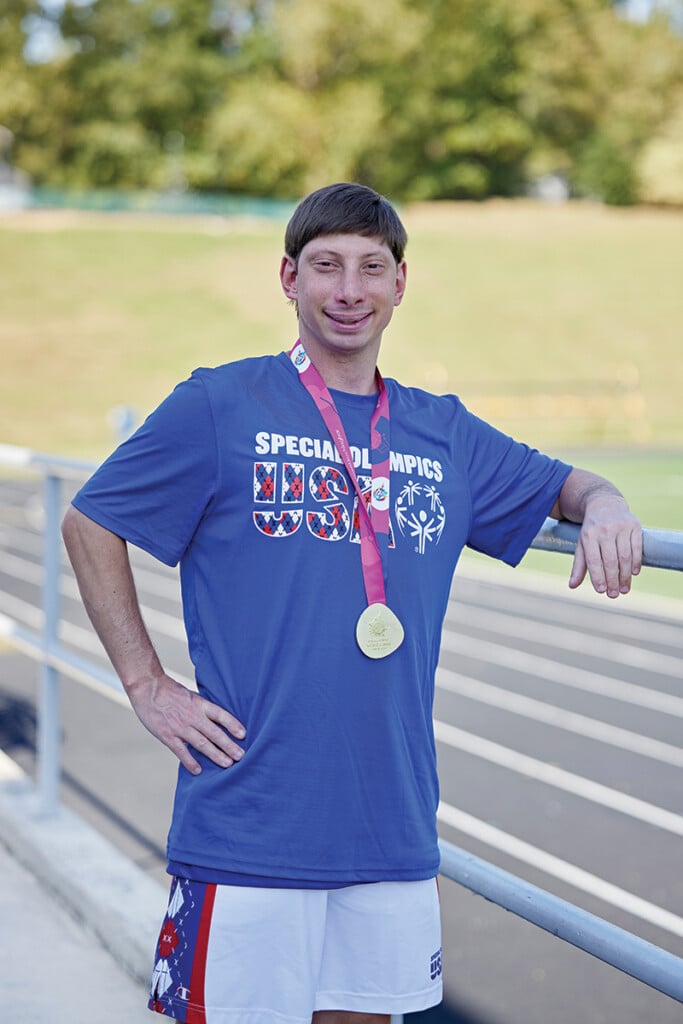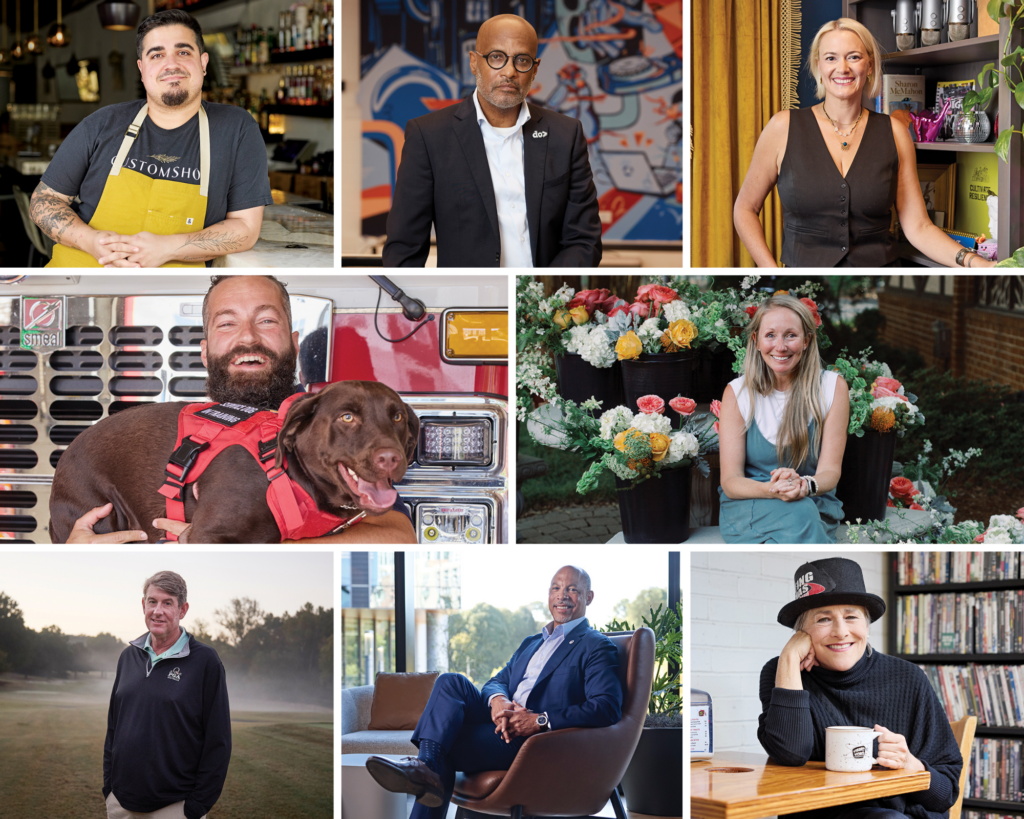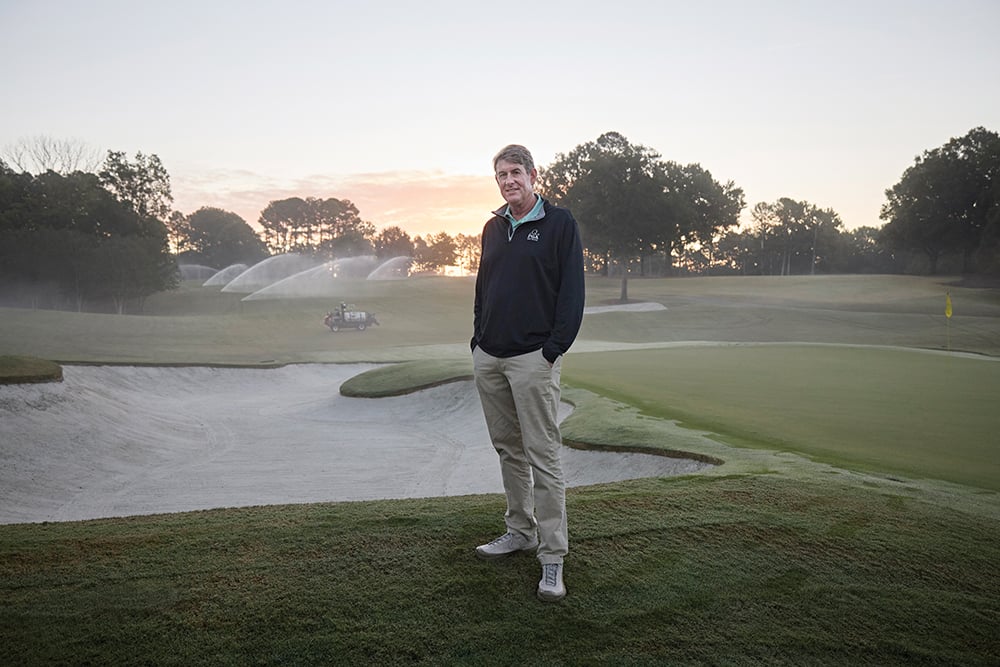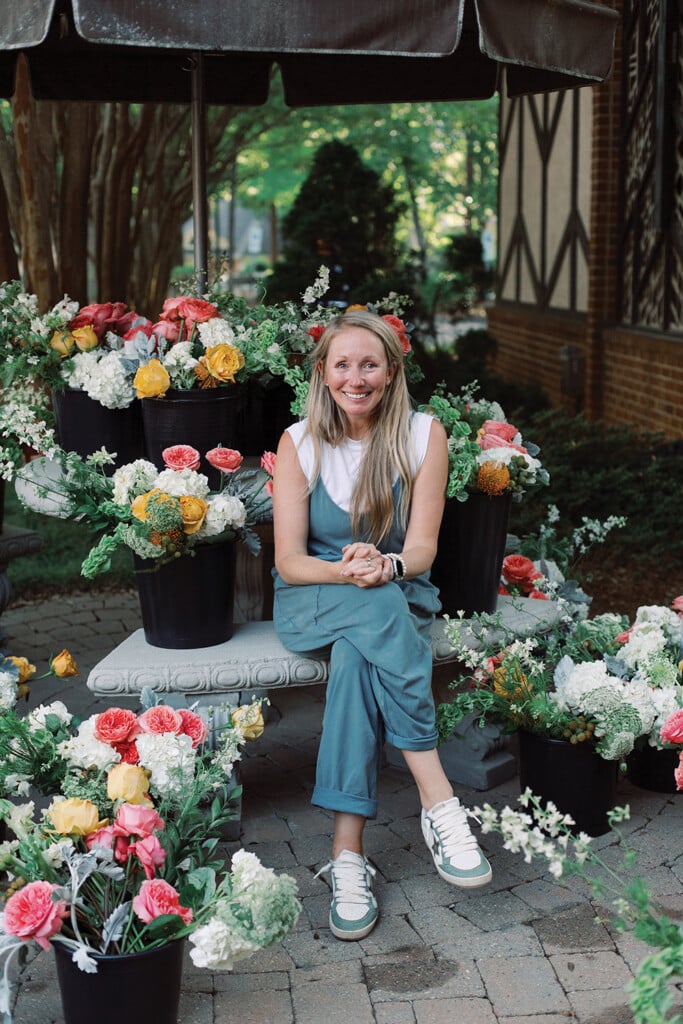2023 Charlotteans of the Year: Philip Blount
Over the summer, a Charlotte athlete won gold—and confidence—at the Special Olympics World Games in Berlin

On June 22, 31-year-old Philip Blount stood in the Hanns-Braun-Stadion, an open stadium in Berlin’s Olympic park. He was one of 7,000 athletes from 190 countries—and one of only two from North Carolina—in Berlin to compete in the Special Olympics World Games. As he waited his turn in the shot put finals, he felt small. He was in the center of a historic stadium that holds 3,000 people, and ESPN’s cameras were rolling.
He looked at each of the six athletes he was competing against; all seemed at least twice his size. To ground himself and steady his nerves, Philip repeatedly recited the Special Olympics motto to himself: “Let me win, but if I cannot win, let me be brave in the attempt.”
When it was his turn, he heaved the 8.8-pound shot 6.68 meters, just short of 22 feet. After the round, competitors were led out of the stadium and waited for judges to score them.
When they were brought back an hour later, Philip was in for a “total shock.” He’d won gold. A volunteer led him to stand on the first-place podium, and those who’d won second through seventh were on either side of him. As the crowd cheered, Philip kept checking the number on his podium in disbelief.
He’d been just as shocked eight months earlier to learn that he’d been selected to go to the World Games. The Special Olympics is the largest international sports organization for people with intellectual disabilities, and the World Games is its highest level of competition. North Carolina was allowed to bring one “athletics”—Special Olympics uses this term for track and field—competitor to the 2023 World Games. To qualify, an athlete had to have won a gold medal at a state competition the year before. That year, 80 athletics contestants won gold in North Carolina, and only one name would be randomly selected from the pool.
But long shots are Philip’s specialty. He was born in Charlotte in 1992, and his parents, Jane and Phil, were told their son wouldn’t live an ordinary life. He was small, and in his first year, he was diagnosed with “failure to thrive”—a term traditionally used to describe children who aren’t keeping up with standard height and weight charts—plus a heart defect and intellectual and developmental disabilities. But as Philip grew, Jane and Phil watched him blossom. He began running at less than a year old. He played in recreational football leagues, where they realized how driven and competitive their son was.
After Philip finished elementary school, Jane and Phil couldn’t find a middle school they believed would benefit him. So they started Philips Academy, a nonprofit secondary school for students with complex language, learning, and cognitive disabilities. In addition to academics, Philips Academy works to build students’ life and social skills. Thanks in part to the skills he learned there, Philip now lives independently in SouthPark and works full-time preparing and serving lunches at Charlotte Christian School.
That’s where he was on the day in October 2022 when a Special Olympics North Carolina representative came into the cafeteria to let him know he’d been selected for the World Games. Philip’s been training and competing in athletics, basketball, and flag football with Special Olympics since he was 14, but he never expected to go to the World Games.
“Oh, that was a surprise—a total shock,” Philip tells me in September as we sit at a picnic table with Jane and Phil outside Trinity Presbyterian Church, where Philips Academy leases space. He’s wearing his Team USA jersey, and he speaks with deliberation, emphasizing certain words and pausing often to select the right ones. “It’s like winning the lottery, and you think that there’s always better candidates for that than you.”
Ralph Jones and Chris Boykin, Charlotte Christian’s track and field coaches, heard about Philip’s selection and offered to train him for free. Rick Gemereth, Special Olympics Mecklenburg County’s athletics coach, also worked with him. “I would have not gone that far,” Philip says, “without those connections or that fortune of luck that they wanted to train me.”
Since returning from Berlin, Philip has completed training at Special Olympics North Carolina’s Morrisville office to become a Special Olympics Global Messenger, one of a group of athletes who speak publicly about their experiences with Special Olympics. He’s done 10 media interviews about the World Games.
“This has been a tremendous experience for him,” Phil says at the end of our interview. “It’s taken him to a whole new level. Just being able to talk to you like this.” Philip’s been chatting with me and answering my questions for nearly an hour.
“Oh, yes,” Philip says. “Special Olympics has helped me understand a lot of things. I would be more isolated and introverted than I am right now.” When we’re finished, he carefully pulls his gold medal from a brown leather pouch. He’s had the medal for three months but repeatedly shakes his head in disbelief during our conversation. “I didn’t think,” he says, “the best was going to be me.”
TESS ALLEN is the associate editor.





